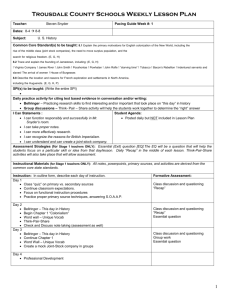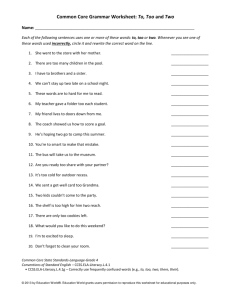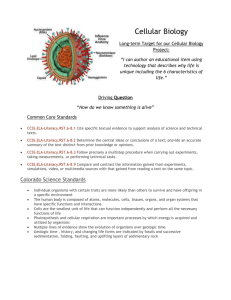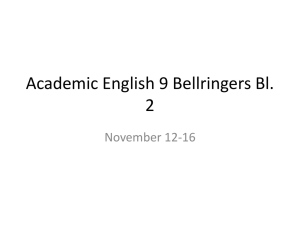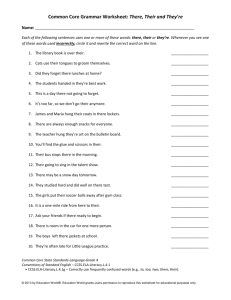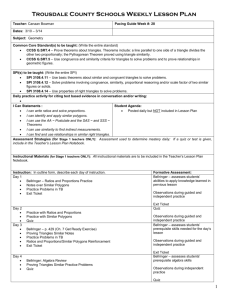Lesson Plan Template - Trousdale County Schools
advertisement
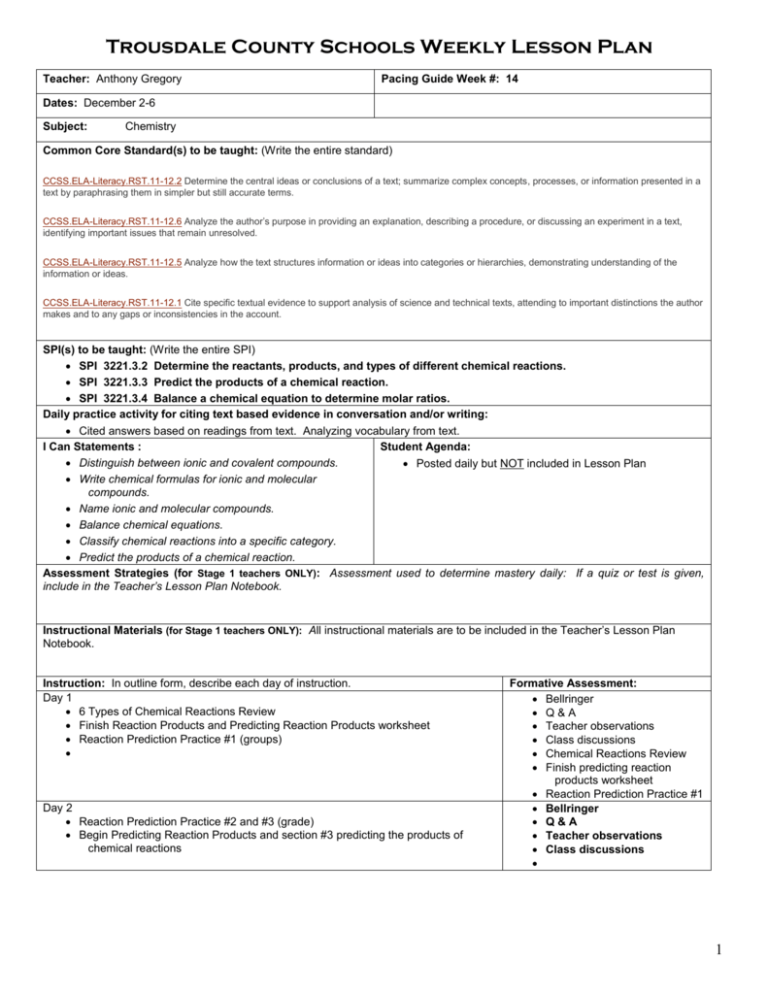
Trousdale County Schools Weekly Lesson Plan Teacher: Anthony Gregory Pacing Guide Week #: 14 Dates: December 2-6 Subject: Chemistry Common Core Standard(s) to be taught: (Write the entire standard) CCSS.ELA-Literacy.RST.11-12.2 Determine the central ideas or conclusions of a text; summarize complex concepts, processes, or information presented in a text by paraphrasing them in simpler but still accurate terms. CCSS.ELA-Literacy.RST.11-12.6 Analyze the author’s purpose in providing an explanation, describing a procedure, or discussing an experiment in a text, identifying important issues that remain unresolved. CCSS.ELA-Literacy.RST.11-12.5 Analyze how the text structures information or ideas into categories or hierarchies, demonstrating understanding of the information or ideas. CCSS.ELA-Literacy.RST.11-12.1 Cite specific textual evidence to support analysis of science and technical texts, attending to important distinctions the author makes and to any gaps or inconsistencies in the account. SPI(s) to be taught: (Write the entire SPI) SPI 3221.3.2 Determine the reactants, products, and types of different chemical reactions. SPI 3221.3.3 Predict the products of a chemical reaction. SPI 3221.3.4 Balance a chemical equation to determine molar ratios. Daily practice activity for citing text based evidence in conversation and/or writing: Cited answers based on readings from text. Analyzing vocabulary from text. I Can Statements : Student Agenda: Distinguish between ionic and covalent compounds. Posted daily but NOT included in Lesson Plan Write chemical formulas for ionic and molecular compounds. Name ionic and molecular compounds. Balance chemical equations. Classify chemical reactions into a specific category. Predict the products of a chemical reaction. Assessment Strategies (for Stage 1 teachers ONLY): Assessment used to determine mastery daily: If a quiz or test is given, include in the Teacher’s Lesson Plan Notebook. Instructional Materials (for Stage 1 teachers ONLY): All instructional materials are to be included in the Teacher’s Lesson Plan Notebook. Instruction: In outline form, describe each day of instruction. Day 1 6 Types of Chemical Reactions Review Finish Reaction Products and Predicting Reaction Products worksheet Reaction Prediction Practice #1 (groups) Day 2 Reaction Prediction Practice #2 and #3 (grade) Begin Predicting Reaction Products and section #3 predicting the products of chemical reactions Formative Assessment: Bellringer Q&A Teacher observations Class discussions Chemical Reactions Review Finish predicting reaction products worksheet Reaction Prediction Practice #1 Bellringer Q&A Teacher observations Class discussions 1 Day 3 Finish/review Predicting Reaction Products and section #3 predicting the products of chemical reactions Presentation over activity series Activity Series Practice Day 4 Review Activity Series Practice Ch 8 Section 2 and 3 Quiz Ch Review for test Day 5 Review Ch 8 Sec 2 and 3 Quiz Review for Test Bellringer Quiz Bellringer Q&A Teacher observations Class discussions Predicting Reaction Products and section #3 predicting the products of chemical reactions Activity Series Practice Bellringer Q&A Teacher observations Class discussions Review Activity Series Practice Ch 8 Section 2 and 3 Quiz Ch Review for test Bellringer Q&A Teacher observations Class discussions Review quiz Ch review Bellringer Quiz Day 6 Day 7 Alternate Instructional Interventions: Provide a specific plan for alternate instructional interventions, or re-teaching. Additional practice with conversions if necessary Grouping/peer tutoring Additional practice problems Assessment modifications Instructional technologies to enhance learning: List how each will enhance the effectiveness of the lesson. Internet resources 2
